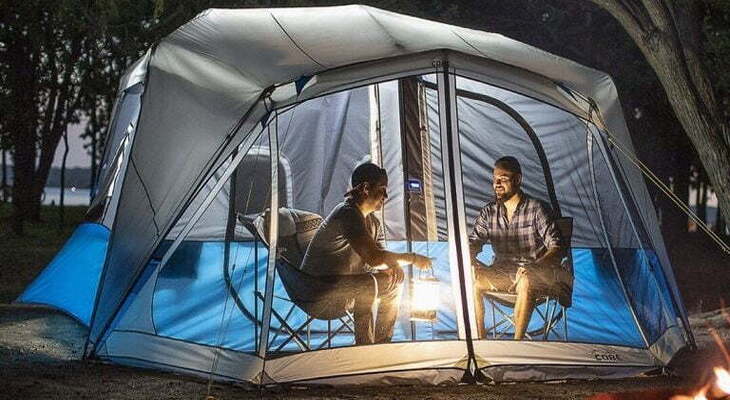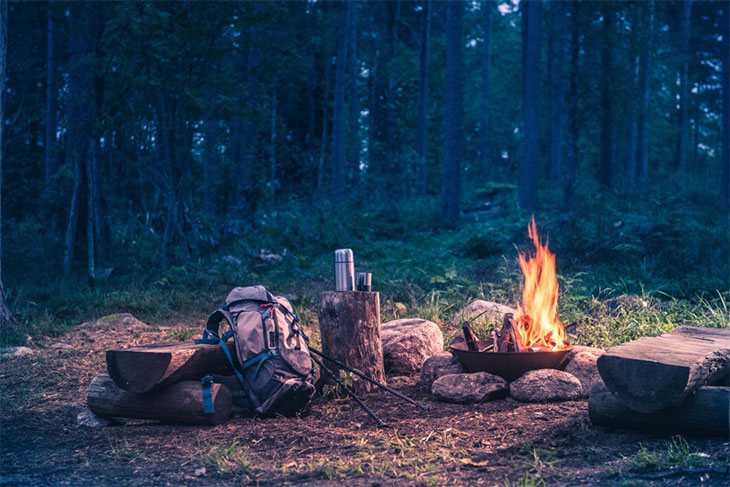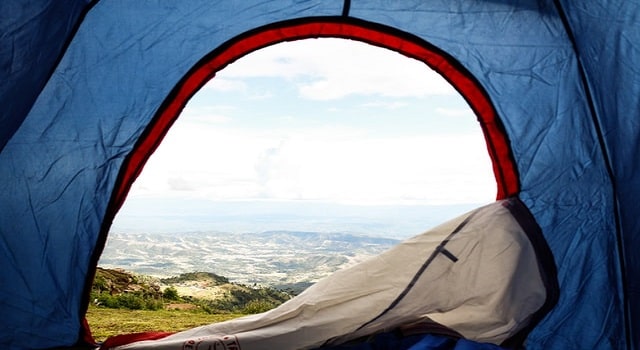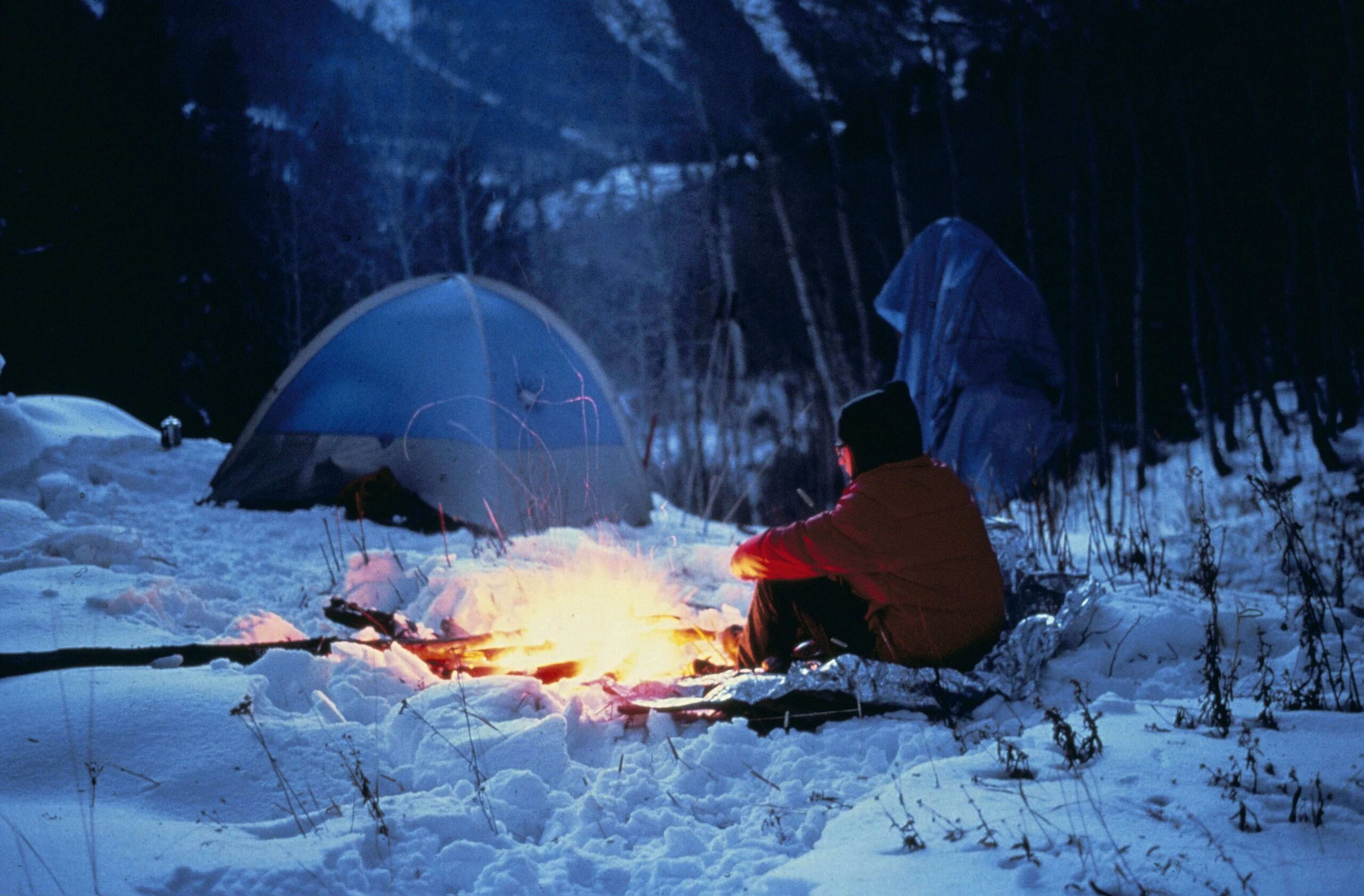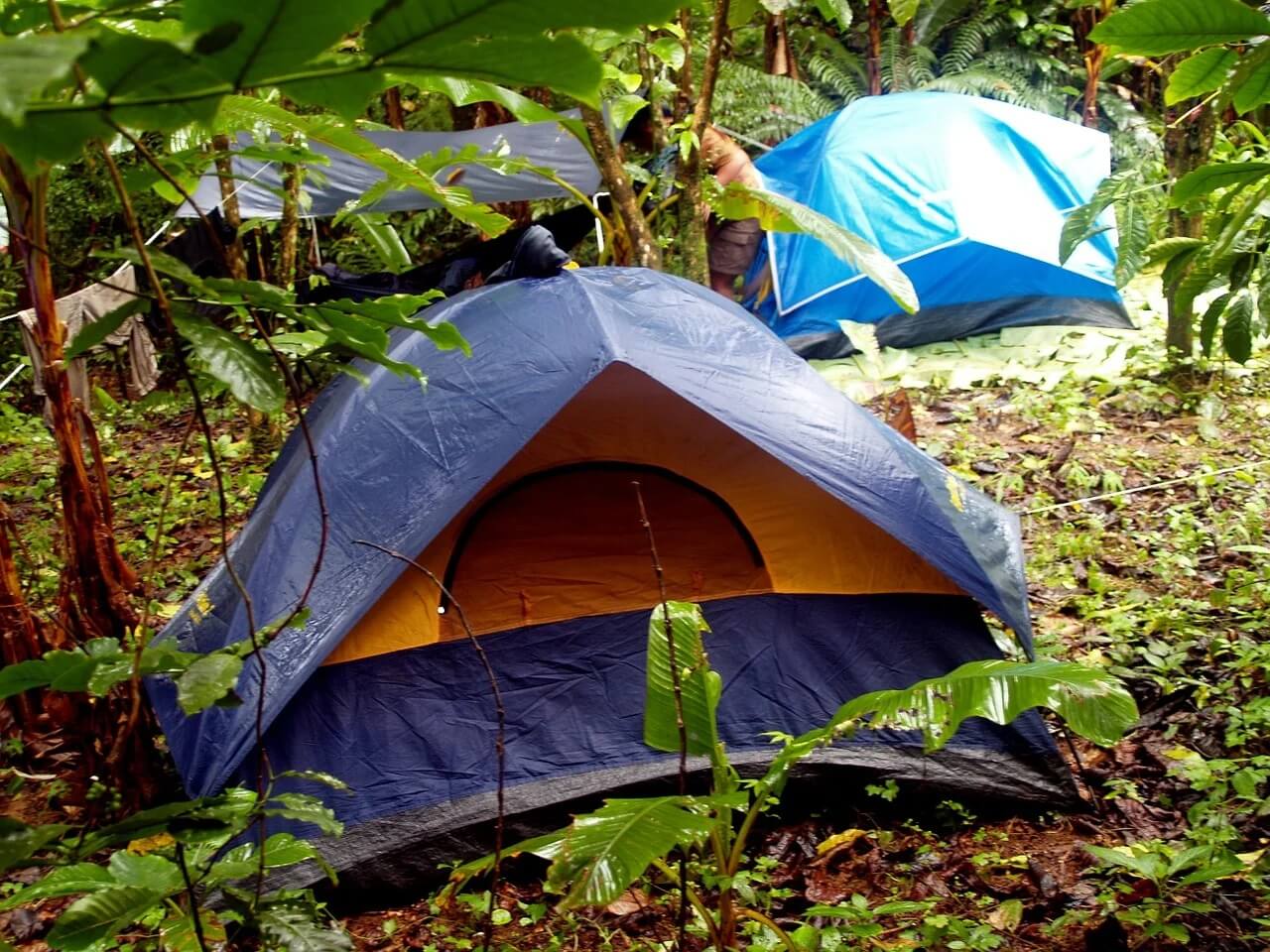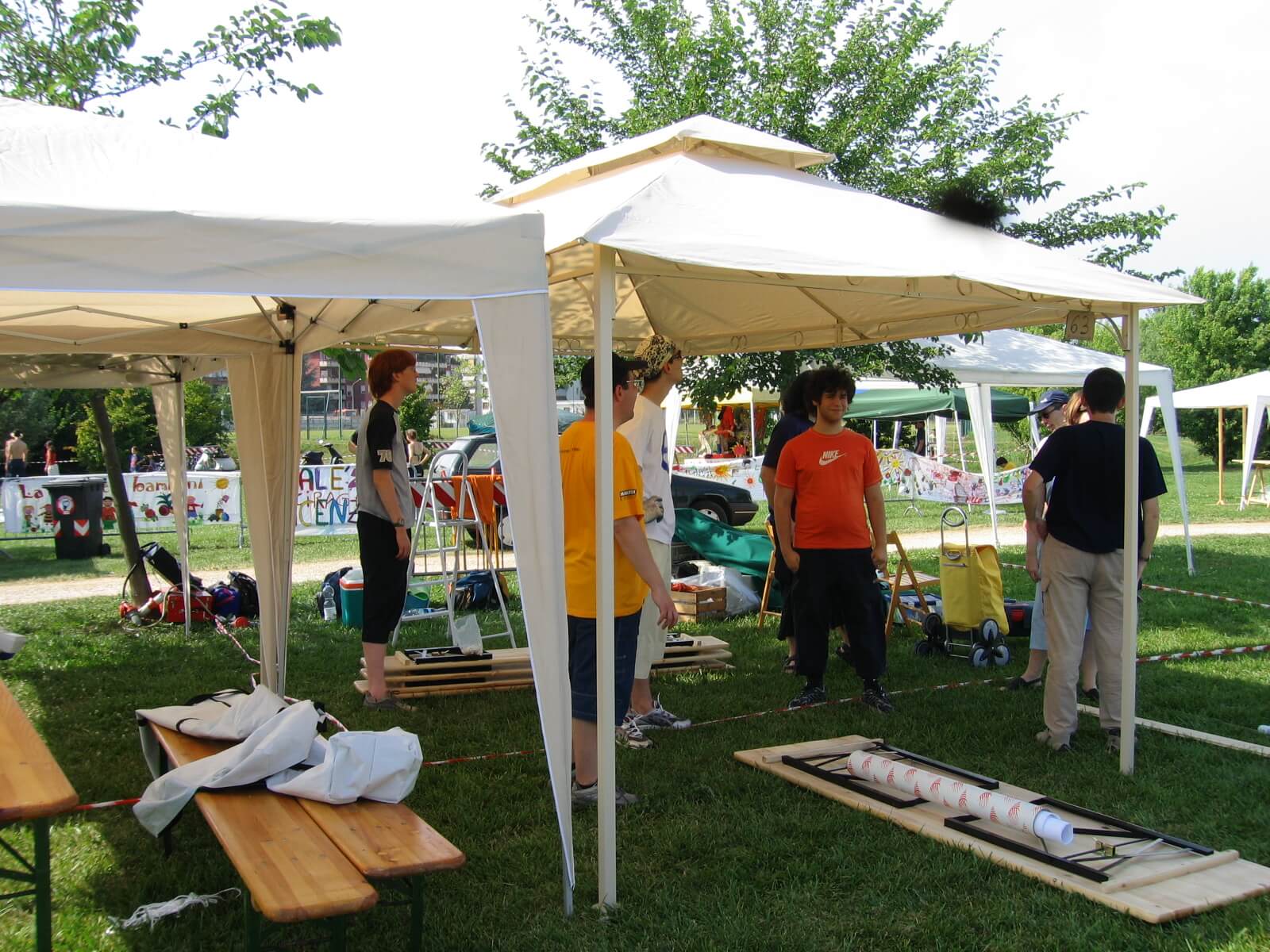
Whether you’re new to backpacking or a longtime Pro, choosing your core weight is an essential part of enjoying your time on the trail. The lower your core weight, the easier it will be to have a good time on your trip.
But what is a good basic weight for backpacking? Read when I give you a crash course on how to make the perfect package.
Contents
What is the backpack base weight?
When you are hiking or backpacking, the items in your pack that are not worn are known as your basic weight. Items that can contribute to your basic weight include your tent or cradle, sleeping bag, cooking utensils, first aid kit, and clothing.
It can be difficult to decide which items are necessary and which are not. The most important thing to remember is the lighter the bag, the less energy you have to put into carrying it.
Double the basic weight is important if you want to speed up your ride. Every ounce will make a difference when you are constantly hiking on a long-distance trail.
How can you lose your core weight?
The best way to lose weight is to choose carefully what items are needed and to invest in lightweight items whenever possible. There are many options available for lightweight gear, so you will have no problem finding what you need.
What should be my basic weight?
There are a few things to consider when determining the basic weight of your bag. In particular, you should be aware of the following:
- The distance of your journey
- How long have you been on the road?
- Your level of experience
Generally, you want to keep your pack at 20% or less of your body weight. So if you weigh 150 pounds, your package should not weigh more than 30 pounds.
Remember that £ 30 may be more manageable for someone with significant trial experience than just starting out. This means you should always carry your pack for a few short test rides to make sure it can handle the weight on a long ride.
To calculate your basic weight, simply multiply your weight by 0.20 or use a simple online calculator.
What equipment is required?
When it comes to backpacking, there are some things you can’t live without. That said, there are plenty of options for all your essentials that can help you lose weight.
Bag
Your backpack is one of the most important things you can take with you on the trail. However, there are a few things to consider when choosing your bag.
Qualifications
How much should be in your bag? If you do not plan to hike for more than a day, a 30-gallon pack may be fine. On the other hand, a long journey can justify a bag of 70 liters or more.
Please note that the larger the package, the heavier the base weight. Do some research on the size of the package before making your final decision.
Functions
Backpacks have many useful features to choose from, so be sure to research the various options available. Here are some options:
Frame type (indoor / outdoor / frameless)
- Failed
- Hydration deposits
- Ventilation
- Attachment points for things like poles, cutouts, and snow shows
Gold luggage and shelter
Sleeping gear and shelter are probably your biggest things, so first you have to choose the right gear. Your best option is a tent or cradle, but you can also sleep on the ground.
Each option has its advantages and disadvantages, and they all affect the weight of your package.
Shop
A tent gives you the greatest freedom of movement. It also gives you good protection from the elements. If rain is predicted, the tent is the best way to stay dry.
However, a tent needs a good place to camp. If you are hiking in an area where there are not many vacancies, it can be difficult to find a good place to pitch your tent. Also, if the ground is rocky, it can be difficult for you to rest.
Depending on the weight, tents can vary greatly. To backpack, you’ll need a tent that weighs about 2.5 pounds per person. So if you are the only tent user, try to find a weight less than three pounds to lose weight.
Swing
Although some people may give up the idea of hammock camping, don’t write it down yet. Camping with a hammock can be more difficult than camping with a tent, as the setup may take some practice, but it may actually be more comfortable.
Many swings have a mesh cover so you don’t have to worry about insects attacking you while you sleep. If it looks like it’s going to rain, you can easily build a shelter outside the paracord and tarp.
Hemaxes usually weigh less than three pounds, so they are there with tents.
On average, tarps weigh about 3.5 grams per square meter and para cards typically weigh 7 grams per 100 feet.
Sleeping bag
Although sleeping bags are not always necessary, I have decided to add them to this list because a proper sleeping bag can offer many benefits.
In particular, a sleeping bag provides comfort at the end of a long hiking day, extra warmth at night when the temperature drops, and protection from the elements.
The best options are mummy-type sleeping bags or barrel-shaped sleeping bags. They take up the least space in your bag and usually weigh less than three pounds, depending on the size and shape of the bag.
Other sleeping options to consider include self-inflating air mattresses and sleeping pads, which can give you extra protection from rocky or wet ground. A lightweight mattress or pillow will add 1-2 pounds to your pack.
First aid
It goes without saying that first aid should be given priority when packing. However, you do not need to go overboard. You can buy a small, lightweight relief kit that provides you with all the basics you need to treat minor injuries.
However, if you are worried about ankle sprains or falls, you can add one or two things that will make it easier to find if you need help. For example, a flashlight with a strobe option is a lighter option that can give you peace of mind.
Support
While food and water do not take into account their basic weight, they will have containers. Water bottles, thermoses, and coolers carry significant weight in your bag, so be careful when choosing your food.
Foods that are light or have little or no packaging are perfect for your trip. For example, a dehydrated diet weighs only a few grams. You can also eat lots of fruits, nuts, and berries, leftover shells or shells that can damage local wildlife.
When packing food, one thing to keep in mind is to remove all the plastic wrap beforehand and keep the food in paper bags. Then when you stop for the night you can use the bags to power.
Try to avoid adding items that need to be refrigerated, such as sandwiches or dairy products. Non-perishable products are your best bet if you want to lose weight and keep growing.
When choosing a water container, your choice is a bottle or bladder. The hydration bag can hold several liters of water, does not take up much space, and weighs only a few grams when empty.
Other considerations
Other items to consider include a stove with cooking utensils, extra clothes, or a solar phone charger. Take a critical look at each item and make sure it is a “need” and not a “want.”
That said, leaving space for a few luxury items is not a bad thing at all. For example, a book, a small radio, or a cup of coffee can help you start your day on the road and end it with a little relaxation. After a long day of hiking, a little relaxation can be very refreshing.
What are the advantages and disadvantages of low core weight?
While low body weight may seem like a good thing, it is important to remember that there are advantages and disadvantages to being underweight.
Benefits
- Less to use
- The options are more compact.
- Light weight makes it easy to move fast.
Of cons
- Fewer options
- There is not enough space for comfortable items.
Guess
The most important thing to remember when choosing equipment is comfort. A lightweight backpack can easily become more of a hindrance if it is not comfortable on your back.
Determining the ideal base weight for backpacking is not complicated. Still, it will probably require some trial and error. However, once you can enjoy a long day on the trail without the burden of an overweight pack, it will be worth it.
